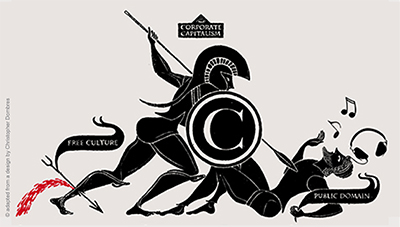Peter Webb (Cambridge): The Future of Remix Culture and Creativity in the Music Industry
Duration: 42 mins 49 secs
Share this media item:
Embed this media item:
Embed this media item:
About this item

| Description: | Lawrence Lessig set out to chart the hope and promise of the Internet in `The Future of Ideas’ where he discussed different contexts for understanding the Internet as a `commons’ where many `free’ resources are able to enhance and develop creativity and innovation. These are contrasted to the `real space’ places affected by the online environment where creative activity takes place and the problem of further entrenchment of copyright laws to restrict the creative process and possibilities offered by the net. In further works `Free Culture’ and `Remix’ Lessig promotes and celebrates the idea of the re-use, adapting, resituating and contextualizing work to produce new ideas, culture and, of course, music. Using this starting point and contextualizing and contrasting this work with Toffler’s (1980) and Ritzer’s (2010) versions of the `prosumer’, Lull’s emphasis on the central importance of creative `human expression’, Castells (2001,2006) `Network society’ and Boyd’s (2011) `Networked publics’ This paper assesses these Sociological frameworks for their ability to illuminate and present us with tools to understand the processes of reintermediation, disintermediation and reorganization of the music industry and its creative networks. It also looks at the impact on the perceived structures and organization of the industry that various theorists have outlined (e.g. Dolata, 2012) and provides a critique of these positions around their lack of attention on the independent sector, music production techniques and the role of the musician (Katz, 2005) |
|---|
| Created: | 2014-04-14 11:55 |
|---|---|
| Collection: | Creativity, Circulation and Copyright: Sonic and Visual Media in the Digital Age |
| Publisher: | University of Cambridge |
| Copyright: | Glenn Jobson |
| Language: | eng (English) |
| Keywords: | CRASSH; Peter Webb; |
| Abstract: | Lawrence Lessig set out to chart the hope and promise of the Internet in `The Future of Ideas’ where he discussed different contexts for understanding the Internet as a `commons’ where many `free’ resources are able to enhance and develop creativity and innovation. These are contrasted to the `real space’ places affected by the online environment where creative activity takes place and the problem of further entrenchment of copyright laws to restrict the creative process and possibilities offered by the net. In further works `Free Culture’ and `Remix’ Lessig promotes and celebrates the idea of the re-use, adapting, resituating and contextualizing work to produce new ideas, culture and, of course, music. Using this starting point and contextualizing and contrasting this work with Toffler’s (1980) and Ritzer’s (2010) versions of the `prosumer’, Lull’s emphasis on the central importance of creative `human expression’, Castells (2001,2006) `Network society’ and Boyd’s (2011) `Networked publics’ This paper assesses these Sociological frameworks for their ability to illuminate and present us with tools to understand the processes of reintermediation, disintermediation and reorganization of the music industry and its creative networks. It also looks at the impact on the perceived structures and organization of the industry that various theorists have outlined (e.g. Dolata, 2012) and provides a critique of these positions around their lack of attention on the independent sector, music production techniques and the role of the musician (Katz, 2005) |
|---|---|

